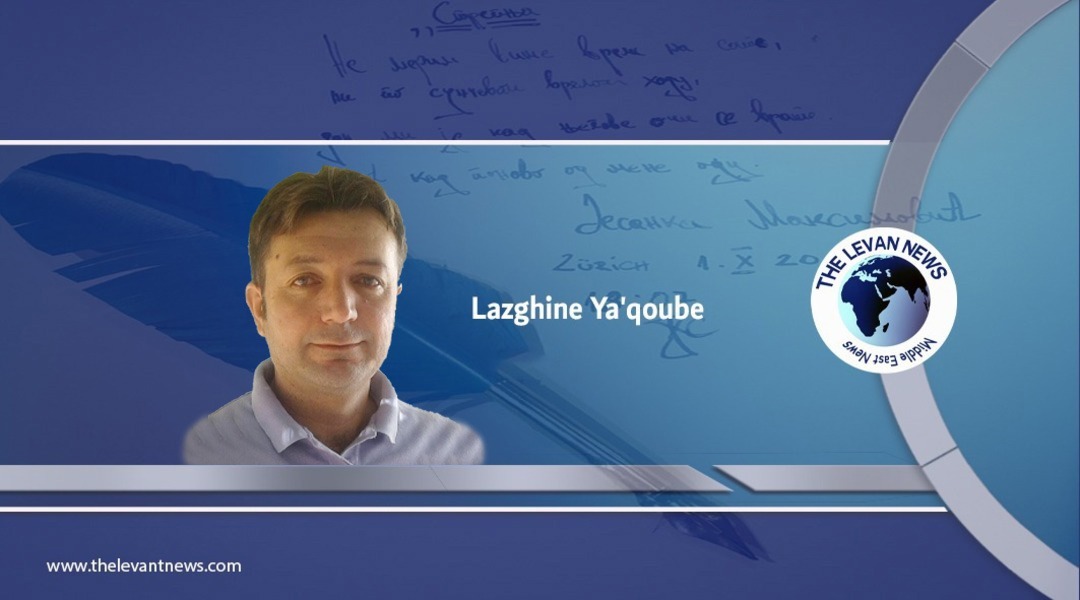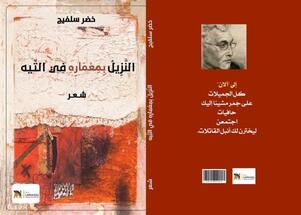-
A landmark thaw that could terminate Syrian- Turkish decade chill

At last, the long- sought and much wanted Russian attempts at a reconciliation process between Damascus and Ankara seem to yield results and proceed in the right direction as foreign ministers of Turkey, Syria and Russia are slated to meet “soon”.
While both the date and the location of the second trilateral ministerial meeting remains undisclosed yet, Moscow quintessentially poses itself for that long- sought diplomatic conference.
If takes place, such a meeting would mark the ever highest-profile one between Ankara and Damascus since the outbreak of the Syrian war in 2011. Moscow has been exceedingly sparing no efforts to mend Damascus- Ankara fences.
The whole story developed in the closing days of 2022, when Ankara surprisingly announced that Turkey’s defense minister and intelligence chief met their Syrian counterparts in Moscow in a clear sign of an imminent rapprochement between Ankara and Damascus in the decade- long Syrian conflict.
In Moscow, Turkish Defense Minister Hulusi Akar and the head of its National Intelligence Organization (MIT), Hakan Fidan, met with Syrian Defense Minister Ali Mahmoud Abbas and Head of the Syrian National Security Bureau Ali Mamlouk in Moscow along with Russia’s Defense Minister Sergei Shoigu.
The issue of Syrian refugees on Turkish soil and that of Syrian Kurdish fighters beneath Turkey’s southern borders in Rojava topped the agenda of the “constructive meeting.”
Following that, Turkey’s Foreign Minister Mevlut Cavusoglu said the next step in the rapprochement road map could be a meeting on the level of Foreign Ministers of both countries, the Turkish diplomat said he intends to meet with his Syrian counterpart Faisal Mekdad adding that differences between Damascus and Ankara can be resolved in the future.
Since August 2022-- following a Russian- Turkish summit in the famous resort city of Sochi on the Black Sea coast-- Turkish President Recep Tayyip Erdogan has repeatedly said he wanted to meet his Syrian counterpart.
In November, and, following an unprecedented aerial bombardment- mostly drone strikes- and artillery shelling against northeast Syria, Erdogan said he was ready to meet his Syrian counterpart.
Bashar Assad, breaking his long- preserved silence, buried the idea alive by saying such a meeting was out of his considerations for the time being.
Seeming persistent, Erdogan floated a new idea. In mid- December, the Turkish President announced he had proposed to his Russian counterpart Vladimir Putin forming a trilateral mechanism with Russia and Syria to accelerate diplomacy between Ankara and Damascus and bury the hatchet.
Syria wants Turkey terminate its “occupation of its territories” and halt supporting Syrian opposition forces. In 2019, just two months to “Operation Peace Spring” in Sere Kaniye (Ras al-Ain) and Tal Abyad, Assad said he would- although unwillingly- agree to meet with Turkish President only if such a meeting would serve the “interests of Syria.”
Recently, “Syria’s interests” were echoed by Cavusoglu when he said Turkish forces were not going to remain in Syria forever.
Undeniably, the great breakthrough between Damascus and Ankara is attributed to Vladimir Putin, who seems to be- though silently- the “strongest man in Syria,” amid receding U.S. influence in the Syrian crisis.
Under Russia’s auspices, Mamlouk and Fidan have met intermittently in the last two years in Moscow and elsewhere. Early in September, Fidan spent a two- day extensive security conference in Damascus.
There seems a common perception in both Ankara and Damascus- though varyingly- that the once furtive meetings should be mounted to a diplomatic level. Erdogan’s trio mechanism seems to give results right now.
Observers have recently noticed a change in Syria’s official discourse towards Turkey for a softer one. While it is premature to hold an Assad- Erdogan meeting at this juncture, it seems the process has a foundation to build upon this time presumed not a rosy one however.
Prior to 2011, both countries had widely improved relations in all arenas owing in part to the personal friendship between Assad and Erdogan.
In retrospect, the last diplomatic meeting held both countries dates back to August 2011, when Turkey's then Foreign Minister Ahmed Davutoglu met President Assad in Damascus on the developing events sweeping the country at the time.
Idlib among other Syrian territories in West and East Euphrates remain occupied by Turkey and its Syrian factional proxies. Assad's main condition for a dialogue with Erdogan is clear; full withdrawal of Turkish forces from Syrian territories.
With differences still diverging the two sides, both have a converging interest in terminating the Autonomous Administration of North and East Syria (AANES) and its military formations.
While Damascus tries to recover the oil- rich Jazira Region to tackle its dilapidated economy, Ankara seeks to destroy the Kurdish- led Syrian Democratic Forces (SDF) which it perceives as the Syrian extension of the outlawed Kurdistan Workers’ Party (PKK).
Erdogan wants to retain office in the coming presidential elections scheduled on June 18. Reconciling with Assad could boost his chances in that bid.
In late July, Ankara said it was willing to support Damascus against SDF. However, the presence of the U.S. troops- SDF's main partner in the fight against the Islamic State (ISIS)- could be a stumbling stone in that way.
That being the case, Idlib-- a major opposition bastion and home to a number of Observations Posts run by Turkish forces-- could be compromised in a possible future deal between the two neighboring states.
Since the Russian intervention to the aid of Assad in late 2015, the Syrian President has emerged more stronger. Syria is being re-introduced to its Arab fold. Washington rejects Assad be rehabilitated and instead should be held accountable.
Cavusoglu is scheduled to meet U.S. Secretary of State Antony Blinken in the United States on January 18.
Putin, as a main backer supporter of the Syrian regime and playing Erdogan’s savior in the 2016 Turkey’s failed coup attempt, has been successful in bringing step- by- step Turkey-- a NATO member state-- to the Russian side. Though varyingly and relatively, Putin holds sway over both leaders. To the chagrin of Uncle Sam, Turkey seems rotating in the Kremlin’s orbit.
A Russian- proposed “revised version” of the all- security Adana Agreement of 1998 could be an appealing alternative that could alleviate Erdogan’s security concerns in Rojava. This could be merged into the Sochi Understanding of 2019 which- among other things- stipulate Kurdish fighters should fully distance 30km from the Turkish border.
The visit to be paid in the coming days by Iran’s President Ebrahim Raisi to Ankara and Damascus could push the whole process a step forward. Much of the all- security Adana Agreement owes to Iran’s mediating role.
Beyond return, the fellowship between Assad and Erdogan is a thing of the past. However, being the very first Syrian leader to pay a visit to Turkey-- and actually remains the sole-- Assad well comprehends the fact that in politics there are no permanent enemies or friends either. In the Middle East, history could-- and usually does-- repeat itself.
BY: Lazghine Ya’qoube
You May Also Like
Popular Posts
Caricature
BENEFIT Sponsors BuildHer...
- April 23, 2025
BENEFIT, the Kingdom’s innovator and leading company in Fintech and electronic financial transactions service, has sponsored the BuildHer CityHack 2025 Hackathon, a two-day event spearheaded by the College of Engineering and Technology at the Royal University for Women (RUW).
Aimed at secondary school students, the event brought together a distinguished group of academic professionals and technology experts to mentor and inspire young participants.
More than 100 high school students from across the Kingdom of Bahrain took part in the hackathon, which featured an intensive programme of training workshops and hands-on sessions. These activities were tailored to enhance participants’ critical thinking, collaborative problem-solving, and team-building capabilities, while also encouraging the development of practical and sustainable solutions to contemporary challenges using modern technological tools.
BENEFIT’s Chief Executive Mr. Abdulwahed AlJanahi, commented: “Our support for this educational hackathon reflects our long-term strategic vision to nurture the talents of emerging national youth and empower the next generation of accomplished female leaders in technology. By fostering creativity and innovation, we aim to contribute meaningfully to Bahrain’s comprehensive development goals and align with the aspirations outlined in the Kingdom’s Vision 2030—an ambition in which BENEFIT plays a central role.”
Professor Riyadh Yousif Hamzah, President of the Royal University for Women, commented: “This initiative reflects our commitment to advancing women in STEM fields. We're cultivating a generation of creative, solution-driven female leaders who will drive national development. Our partnership with BENEFIT exemplifies the powerful synergy between academia and private sector in supporting educational innovation.”
Hanan Abdulla Hasan, Senior Manager, PR & Communication at BENEFIT, said: “We are honoured to collaborate with RUW in supporting this remarkable technology-focused event. It highlights our commitment to social responsibility, and our ongoing efforts to enhance the digital and innovation capabilities of young Bahraini women and foster their ability to harness technological tools in the service of a smarter, more sustainable future.”
For his part, Dr. Humam ElAgha, Acting Dean of the College of Engineering and Technology at the University, said: “BuildHer CityHack 2025 embodies our hands-on approach to education. By tackling real-world problems through creative thinking and sustainable solutions, we're preparing women to thrive in the knowledge economy – a cornerstone of the University's vision.”
opinion
Report
ads
Newsletter
Subscribe to our mailing list to get the new updates!






















